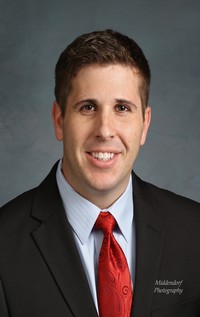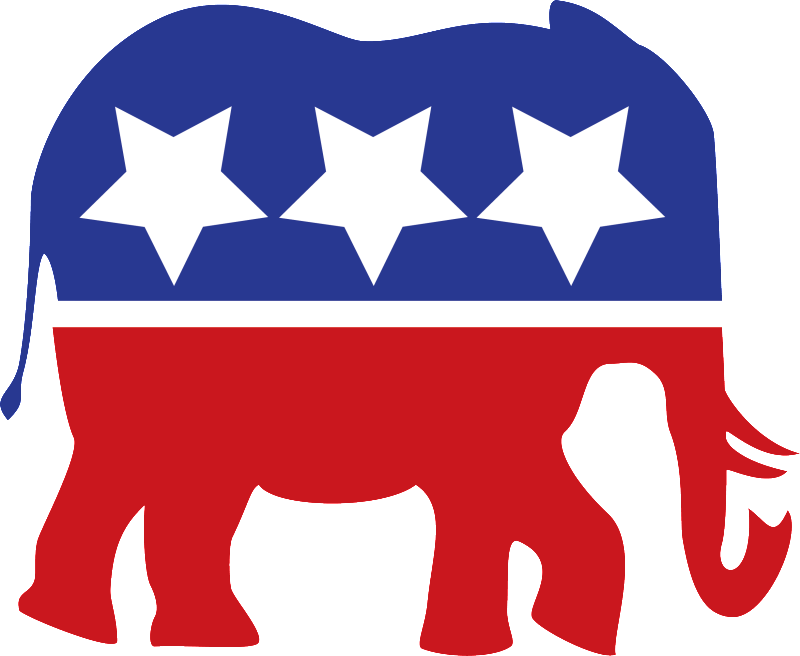JEFFERSON CITY, Mo. – When the Missouri Republican Party held their county caucuses across the state April 9, they selected slates of delegates that will go to the state and congressional districts to vote for the final delegates sent to Cleveland for the Republican National Convention this summer.
But some Republicans, namely supporters of real estate mogul Donald Trump, are raising their eyebrows at the process and raising their voices to oppose what they see as unfair practices.

Among them is Ellisville Mayor Adam Paul, who attended the Wild Horse township caucus in St. Louis County. At that caucus, Paul said that former Missouri House Speaker Tim Jones also attended, despite the fact that he lives in the Meramac township on Wild Horse’s southern border. Paul said Jones brought a slate of candidates that supported second place Republican presidential candidate Texas Sen. Ted Cruz, and eventually, Jones’ slate of candidates won.
While Paul recognized that Jones and his supporters followed the rules and procedures, the decision made at the caucus troubles Paul.
“Those things don’t pass the smell test,” he said. “We had a slate that we presented which was more a reflection of the will of the people, and their slate was filled with Cruz supporters.”
Those Cruz supporters could come into play at the national convention that eventually chooses the final nominee. Each state picks their delegates in their own way, as determined by the state party. In Missouri, a presidential preference primary is held. Trump edged out Cruz by fewer than 2,000 votes March 15, but he won in certain places to give him a favorable allotment of delegates. As the Missouri GOP site explains, Trump will receive 12 of Missouri’s 52 pledged delegates for winning the state and another 25 for winning five of Missouri’s eight congressional districts (five delegates per district). Cruz will get the other 15 pledged delegates for winning the other three congressional districts.
Those delegates are selected in two places: at the state convention and at congressional district (CD) conventions. The county and township caucuses select slates of delegate candidates to attend both the state convention and the CD conventions. Each CD convention will select three delegates for a total of 24 delegates, then at the state convention, 25 delegates will be selected.
The other three delegates are automatic delegates. Missouri COP Chairman John Hancock, National Committeewoman to the Republican National Committee (RNC) representing Missouri Susie Eckelkamp, and Missouri’s delegate to the RNC’s Rules Committee Lance Beshore are those three delegates.
So what does all of this have to do with Cruz supporters potentially stuffing county and township caucuses? The race between Cruz and Trump is relatively close at this point in the race, and national media as well as Republican party officials have mused on the possibility of a contested convention. At a contested convention, delegates must vote how they are pledged by their state’s in an initial round of voting, but afterwards, they may vote essentially as they please if no candidate gets more than 50 percent of the vote.
If Trump does not hit the 1,237 delegate mark, who the delegates support rather than who states voted for could matter a great deal. Trump supporters like Paul are taking notice.
“This is shedding a negative light on the process of the delegates to a larger group of people, and they’re realizing ‘What’s the point of going to a primary and voting in Missouri when your delegates aren’t going to be appropriately’,” he said.
Paul pointed toward delegate selection in other states, like Colorado, where Cruz won all 34 of the state’s delegates in a private party convention without a presidential preference vote.
However, officials within the party, including Missouri GOP Executive Director Jonathon Prouty, believe these fears are overblown, especially because delegates have yet to be selected. CD conventions are held April 30, and the state convention is not until May 23.
“Somebody might be trying to make a prediction by who they saw elected at the county caucuses, but those delegates, the national delegates, have not been selected yet,” he said.
Pat Thomas, secretary of the Missouri GOP, also notes that these rules have existed for quite some time and that the backlash against standard procedure may be a result of a bizarre election season that has brought in unlikely candidates and unlikely voters. Before this election season, she says, Missouri had no reason to change the procedures.
“Usually, we’re in a situation where by the time Missouri votes, somebody gets 50 percent plus one or there’s really only one viable candidate left,” Thomas said. “This is just an anomaly of a thunderstorm that has hit that people just all of a sudden who have not ever or been very limited in the process. Maybe they’ve shown up and voted and now all of a sudden, they’re like ‘Oh but you’re hurting my rights,’ and we haven’t really changed anything.”
She also said that Colorado had not paid for a presidential preference election for the last few election cycles. In Missouri, the government spent around $7 million on the election in March.
Paul believes a simplification of the process and delegate allocation could go a long way to reducing those frustrations.
“A winner-take-all primary is a clear referendum of who we want to choose for our nomination,” he said. “Political Kabuki theater is thwarted when you have a process like that. I think that the process right now, it allows for political insiders and campaigns to push for a strategic movement that only benefits themselves.”
Thomas does not believe that is the answer.
“When [Trump] only won by 0.2 [percent], should we have been a winner-take-all?” she asked rhetorically. “Even now, the Cruz people are saying, ‘Well, is the proportional even really fair?’ because it’s so close.”
Paul notes that should a contested convention happen and Trump does not emerge as the party’s nominee despite a current difference of nearly 2 million votes, it could have a negative impact on the party.
“This is going to throw a wedge into the Republican party if Trump wins the majority of delegates that are bound but not the nomination. I think that’s really going to damage the party,” he said.
It’s possible it already has.







